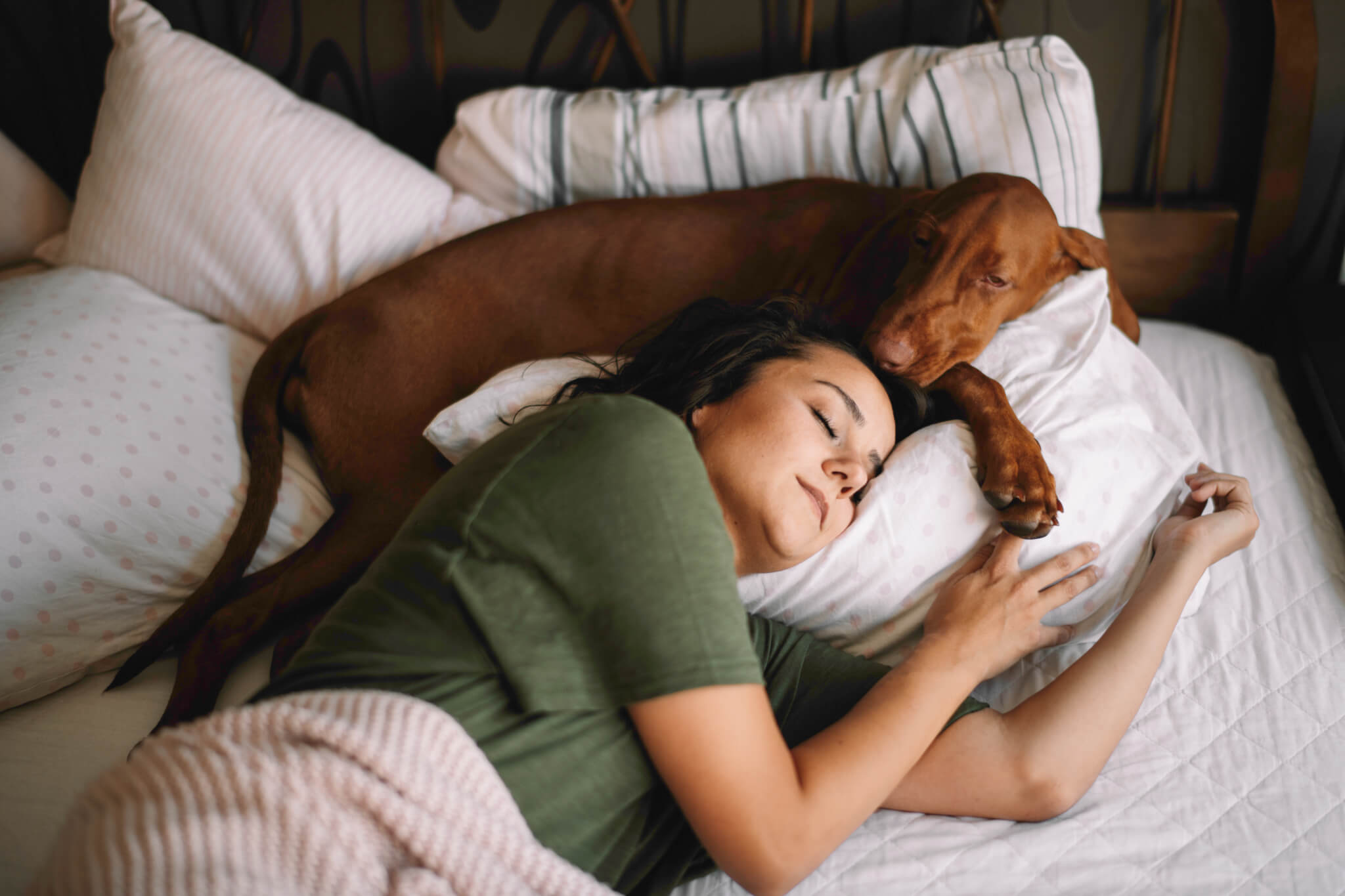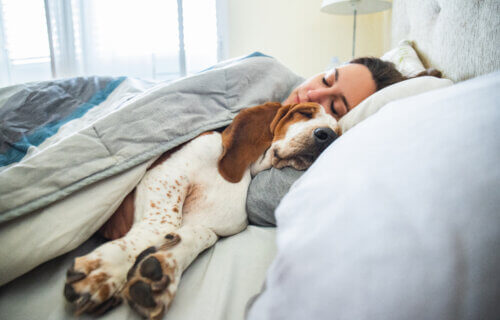HARROGATE, Tenn. — Insomnia is a common complaint nowadays, with many pointing to rampant smartphone use or daily stress as possible explanations for restless nights. While both are likely contributing factors, new research from Lincoln Memorial University suggests pet owners may be particularly at risk of poor sleep.
More specifically, study authors found that having a dog was associated with greater odds of having a sleep disorder and trouble sleeping. Meanwhile, owning a cat was linked to a higher chance of having leg jerks. The research team focused specifically on pet ownership in the United States, and used data originally collected for the National Health and Nutrition Examination Survey (NHANES) conducted in 2005 and 2006.
While this research was unable to establish a causal relationship between pet ownership and poor sleep/sleep disorders, its findings are notably consistent with earlier work that had also concluded pet ownership can negatively impact sleep.
“Prior studies on the association between pet ownership and sleep quality and sleep disorders have varied results,” says study leader Dr. Lauren Wisnieski, Assistant Professor of Public Health and Research and Affiliation, in a media release. “On the one hand, dogs and cats may be beneficial for an owner’s quality of sleep due to the social support that pets provide – pets offer a sense of security and companionship, which may result in improvements in levels of anxiety, stress and depression. Yet on the other hand, pets may disrupt their owners’ sleep.”

“This cross-sectional study aimed to determine if there is an association between dog and cat ownership and sleep quality and sleep disorders – including consideration of aspects such as snoring, waking up during the night, needing pills to sleep and leg jerks.”
Maybe it’s time to keep the pets out of the bed
Researchers built and made use of multivariable logistic regression models that also featured multiple sleep quality factors. These include feeling unrested, feeling sleepy, not getting enough sleep, taking longer than 15 minutes to fall asleep, and getting fewer than six hours of sleep on average.
Generally speaking, cats tend to be more active at night than dogs. Dr. Wisnieski posits this may explain the observed differences in the association of sleep quality and cat verses dog ownership. Moreover, the study notes there were fewer differences in sleep quality indicators between cat and non-cat owners in comparison to dog and non-dog owners.
“If the causal relationship is established through further investigation, the results will have implications for clinician recommendations for treating patients with poor sleep quality,” Dr. Wisnieski comments. “Additionally, educational resources can be developed to inform pet owners about the risks of sleep disruptions and offer potential solutions, such as crating the pet or restricting access to the bedroom at night.”
It’s worth noting that the study also recognizes there may be positive benefits linked to sleeping with a pet, but the data analyzed from NHANES did not actually indicate if owners slept with their dogs or cats.
“In the future, studies would benefit from measuring the human-animal bond, so that we can understand how the strength of it affects quality of sleep,” Dr. Wisnieski concludes.
The study is published in Human-Animal Interactions.
